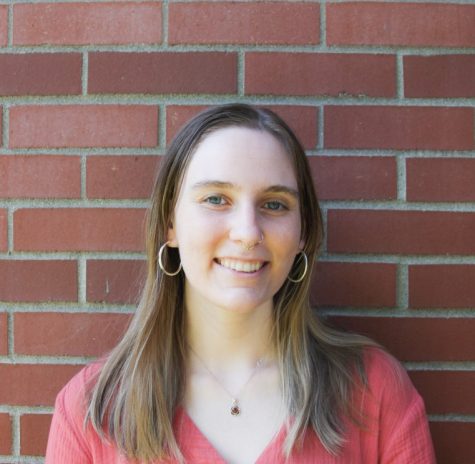Handling the strain of winter quarter and isolation
SPU students and local expert in psychology discuss mental health
January 20, 2021

As winter continues to roll into Seattle during the pandemic, students described how the new season and isolation is impacting their mental health. One expert from the Seattle area has some insight and advice for students who may be struggling.
Dr. David Patterson, professor of psychology at the University of Washington Medical School and career expert from Harborview Medical Center, described the mental health impact of isolation from COVID-19.
“First of all, we are social creatures and we need human contact. Obviously that has lessened dramatically (due to COVID-19). Humans also function through expectations and goals. COVID-19 isolation has essentially frozen life for a lot of people,” Patterson said. “If anyone is prone to mental health issues in the first place, the COVID isolation is really exacerbating whatever mental struggles they might be having.”
“I think it is going to create permanent changes in society. There is the notion of going to the office and to work. That paradigm is going to shift somewhat,” Patterson said about the impact of isolation during COVID-19.
Patterson described five areas of advice he has for students. The first of which was to form goals, even if the goals are for the next day.
“The human brain functions by having expectations. Being goal-oriented is also really important to human behavior and achievements. COVID-19 has robbed almost everyone of a lot of that. Start thinking of goals,” Patterson said.
The second area of advice that he mentioned is in regard to exercise.
“Taking a walk for 20-minutes outside once a day, rain or shine, does wonders. Even if it is a cloudy and rainy day, there is still enough light that gets into the retina that does good things for the brain,” Patterson explained.
The third area that he mentioned was getting oneself immersed in a green space, or a place with nature and getting exercise while doing so. Fourth, understand that you are not battling this alone and to keep an eye on your friends.
“Almost no one is unaffected by this. Everyone is in isolation and most people are likely having some type of mental health impacts,” Patterson said. “When you see your friends really reacting or acting strangely, or being angry and irritable, very often it is a function of this isolation.”
In his last area of advice, Patterson stressed routines and conditioned behavior, which includes creating habits. With the current lack of structure, we lose out on habitual behavior which Patterson emphasized is important for students’ mental health.

Camille Marrs, a senior majoring in interior design, described that despite the gloomy weather and the fatigue from sitting at her desk in front of a computer all day, she had found peace and comfort within her connection to God through a Zoom church group and socially distanced visits with friends.
“I feel joy in God and there have been many good moments in this season! For example, some friends and I recently gathered from a safe distance and told uplifting testimonies to encourage one another,” Marrs said in an email.
Marrs explained that she listens to music, prays and maintains connection to those close to her during these times. She emphasized the importance of exercise as well.
“Some things I’ve been doing to manage the realities of wintertime and isolation are getting outside to exercise and being intentional about staying plugged in to my community,” Marrs said.
Marrs also recommended getting good sleep and eating healthy, but centralized her advice around encouraging students to lean into God.
“I’ve found that even when all else is stripped away- when friends aren’t close, you can’t gather with family as you once could, and when circumstances seem to be beating you down- God alone is steady and unchanging,” Marrs said.
Taylor Maldonado, a senior majoring in interior design, said she has been handling the pandemic relatively well in regard to her mental health. But one stressor that has been lingering is the efforts she has made to get an internship.
“With the stressor of finding an internship, I can’t say I’ve managed that well. I have sent so many emails to possible employers and received a no, the reason being COVID, so it feels like a cloud of stress just hanging above my head every day,” Maldonado described as she continues to search for an internship.
Maldonado explained that she has someone who can help keep her distracted from the stressors presented by her life.
“This may be going for a walk, talking about it, or playing a video game, or pushing me to do the thing I didn’t want to do. It really helps to just take a break from whatever you’re doing or feeling and do other activities with someone you can connect with,” Maldonado explained.
Janae Cowo, a first-year and first-generation student, said that her mental health took a dip when the reality of the new normal of the pandemic set in.
“I didn’t really know what to think when we went into lockdown, I had a bit of anxiety at first because I kept wondering if we would ever go back to normal. However, I got rid of that worry and anxiety by keeping my mind busy,” Cowo said.
Cowo explained that Bible study, working out, and various shows kept her going and helped her maintain good mental health.
“I had Bible study on Thursdays over zoom, working out by following along with YouTube videos, I watched a lot of Korean dramas and anime to keep my brain focused on anything rather than the fear of normality,” Cowo said.
Students who are struggling with mental health can reach out to the Student Counseling Center on the SPU website.



























































































